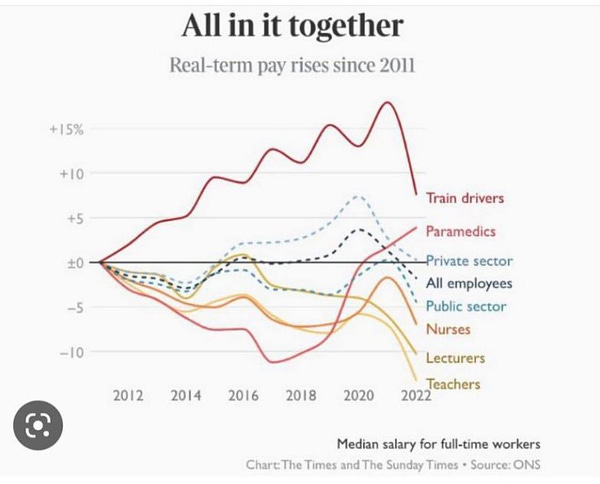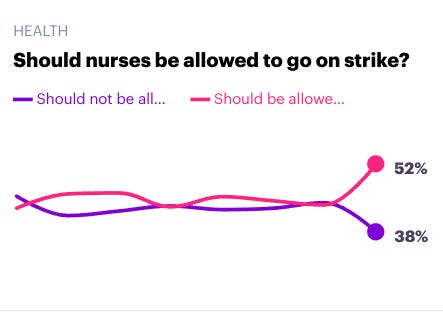Everything old is new again
This week: some notes on support for strike action; some extremely old things named “new”; and what Americans really think about Europe.
Today, as you’ll probably know if you’re a student, have school aged children, or have tried to move about, is the biggest day of industrial action the UK has seen in over a decade: perhaps half a million workers – teachers, lecturers, civil servants, train drivers – are all simultaneously on strike. Some news outlets have been calling it “Walkout Wednesday” which I absolutely don’t feel is going to catch on – as labels go, it’s hardly “Black Monday”, is it – but we are where we are.


I say we all join the paramedics’ union, all in favour?
YouGov runs a number of tracker polls, which have tracked public opinion on whether various groups should be allowed to strike over a period of years. Should you be a teacher, civil servant or air traffic controller, you will be delighted to hear that the public has consistently backed your right to withdraw your labour: in fact, their support has risen, albeit very slightly, over the past few months. The public has historically been more divided on the question of industrial action by nurses, and broadly opposed to that by doctors; but recently those polls have shown plurality (doctors) or majority (nurses) support for them, too. Support for police strikes are on the same course, even if the crossover has yet to take place.
Image: YouGov.
The one that really surprised me, though, is train and underground drivers. There’s been no pronounced surge in support, but there hasn’t had to be: in theory, the public supports their right to strike by a factor of two to one (up slightly from around 1.6:1 a couple of years ago). This is absolutely not the vibe I have ever got from the reporting, vox pops and so on that accompany any actual strike. Perhaps this is the same sort of one-sided, assumption-filled journalism that suggests, say, universal opposition to any housing development that anyone ever proposes.
Or perhaps, given that different YouGov polling has found that 51% don’t support rail workers going on strikes, there are a significant number of people who back the right to withdraw labour in theory; it’s just that they oppose any actually existing strike in practice. If that is the case, and people only support strike action when it doesn’t inconvenience them, then a) I think they’re missing something fairly important about the purpose of strike action, and b) I’m not sure it actually counts as support for strike action at all.
The interesting thing about all this to my mind is the politics of the situation.
Keep reading with a 7-day free trial
Subscribe to The Newsletter of (Not Quite) Everything to keep reading this post and get 7 days of free access to the full post archives.



